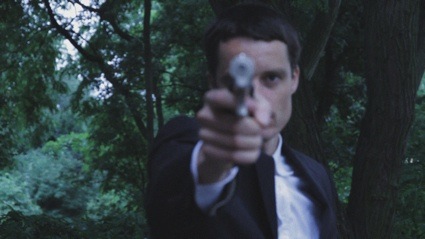 Keren Cytter, Corrections, 2013. Video still
Keren Cytter, Corrections, 2013. Video still
Last weekend, i went to Mechelen (Belgium) for Contour, the Biennial of Moving Image. I had loved the 2009 edition of the biennial and the theme this year was rather intriguing: Leisure, Discipline and Punishment. The venues of the exhibition were quite unusual: the prison, the football stadium of KV Mechelen, the Church of Our Lady-across-the-Dyle and the Museum Hof van Busleyden. Places that people enter for pleasure, necessity, belief or by force.
Besides, it was sunny and Mechelen (aka Malines) is a cute little city.
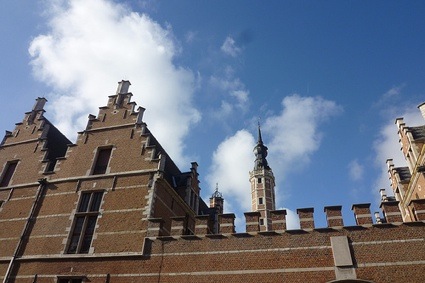 At the Hof van Busleyden
At the Hof van Busleyden
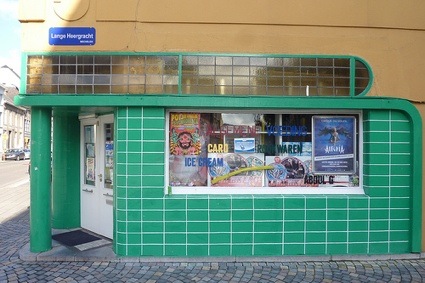
In this edition of Contour, curator Jacob Fabricius wanted to examines social roles and relations within society.
To serve their very specific purposes, prisons, stadiums, churches and museums are governed by specific rules, rhythms, hierarchies and regulations.
The three words of the exhibition title, Leisure, Discipline and Punishment, are also connected, but not to any of the specific venues. Rather, the theme Leisure, Discipline and Punishment is an attempt to tap into these institutions, to examine their possibilities, restraints, social function and relations within society.
Unsurprisingly, the first venue i wanted to visit was the prison but the access was very limited so all i saw was the facade of the prison (obviously) but also the Rules of the Prison, one of the posters that David Shrigley was commissioned and that lists the rules of conduct for the prison. A second one is inside the church. The last one at the entrance of the football stadium.
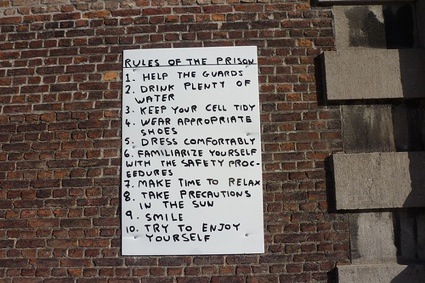 David Shrigley, Rules of the Prison, 2013
David Shrigley, Rules of the Prison, 2013
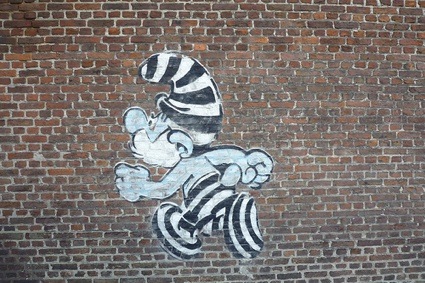 On one of the outside walls of the prison
On one of the outside walls of the prison
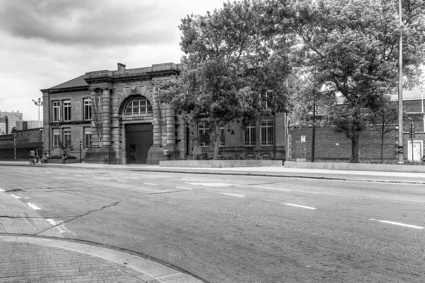 Mechelen prison. Photo: Stijn Swinnen
Mechelen prison. Photo: Stijn Swinnen
Off to the main exhibition space then, The Hof van Busleyden (Court of Busleyden.) Built at the beginning of the sixteenth century for ecclesiastical jurist, Maecenas and humanist Hiëronymus van Busleyden, thehe Hof is now the municipal museum.
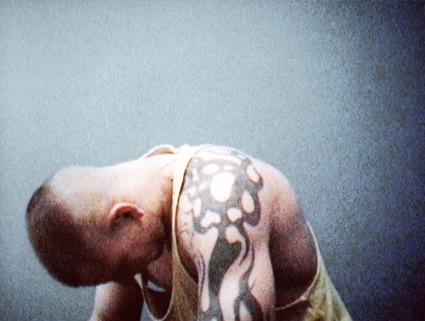 Mark Raidpere, 10 Men, 2003
Mark Raidpere, 10 Men, 2003
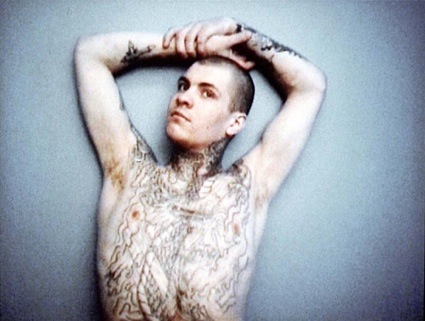 Mark Raidpere, 10 Men, 2003
Mark Raidpere, 10 Men, 2003
That’s at the Hof, that i finally got my bit of prison lurking with Mark Raidpere‘s static shots of ten violent criminals posing in front of the camera as they are serving time in a prison in Estonia. They move and grin slowly and the camera moves sometimes too close for the viewer’s comfort. But the proximity and the voyeuristic slow motion also invites the viewer to feel empathy for the men: are they vicious criminals or victims of society?
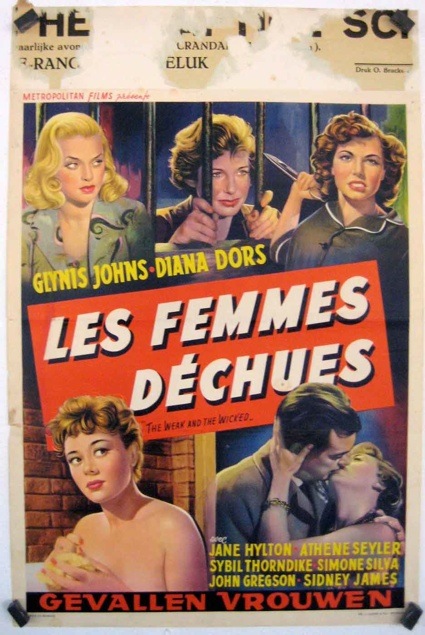 Les femmes déchues (The Weak and the Wicked), a film by J. Lee Thompson, 1954
Les femmes déchues (The Weak and the Wicked), a film by J. Lee Thompson, 1954
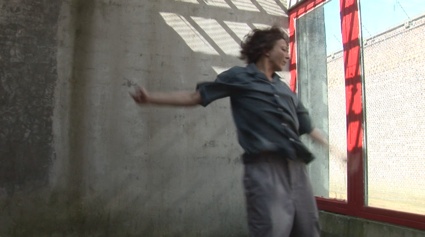 Liz Magic Laser, Prison Score, 2012. In collaboration with dancer Lisbeth Gruwez. Video still
Liz Magic Laser, Prison Score, 2012. In collaboration with dancer Lisbeth Gruwez. Video still
The selection of posters of old films about women in prison is at the opposite spectrum. The women are depicted as sexual and hysterical creatures. The clichés about these women however are still the ones you can see in contemporary tv series about prison (Bad Girls, Orange Is the New Black, etc.) For Prison Score Liz Magic Laser extracted from these films a number of scenes showing inmates making hysterical movements. She then used them for a choreography filmed in Mechelen prison and developed with dancer and choreographer Lisbeth Gruwez which mimics the movements of the film characters.
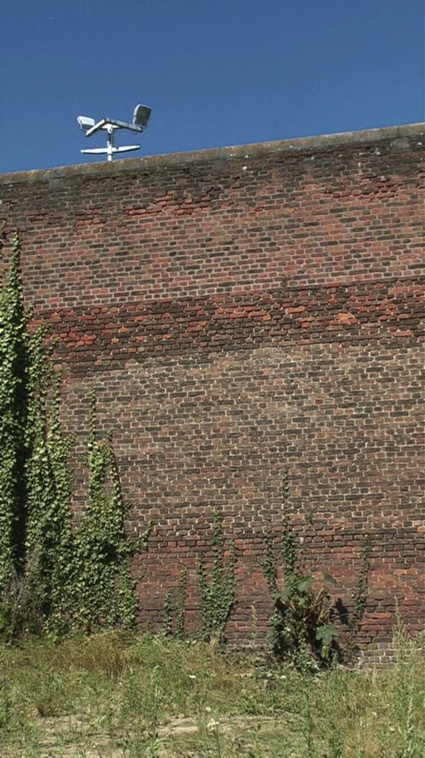 Sarah Vanhee, I Screamed and I Screamed and I Screamed, 2013. Video still. Image: Sven Goyvaerts
Sarah Vanhee, I Screamed and I Screamed and I Screamed, 2013. Video still. Image: Sven Goyvaerts
Sarah Vanhee spent the Summer working with inmates at Mechelen prison. She describes this artistic project: ‘For an outsider, the prison building is a warning or a reassurance. The prisoner himself doesn’t have a face. He is reduced to legal matter, to government penal policy. Within the prison walls, there is only space for silent, obedient bodies. I Screamed and I Screamed and I Screamed challenges this silent body, and hence the normalizing society. The sterile anonymity of the prison wall is disturbed by the voices of the prison inhabitants. And centrally, in the midst of it all, stands a screaming body.’ The video is just a vertical view of a wall and nothing else. Until you pick up the headphones and hear the screams of the inmates.
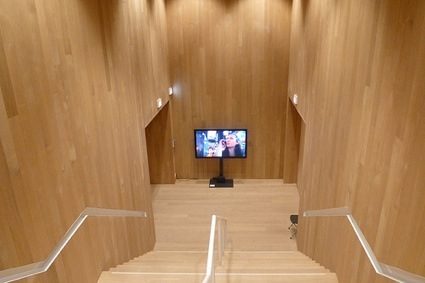 View inside the exhibition at the Hof van Busleyden
View inside the exhibition at the Hof van Busleyden
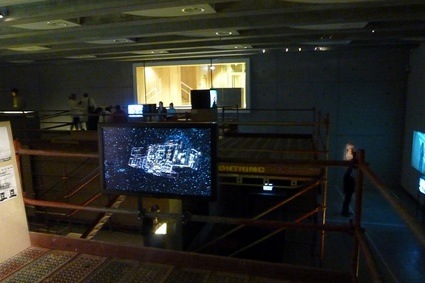 View inside the exhibition at the Hof van Busleyden
View inside the exhibition at the Hof van Busleyden
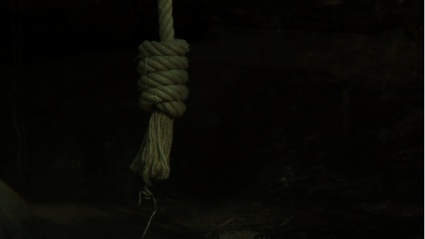 Edgardo Aragón Díaz, Hunter, 2013. Video still
Edgardo Aragón Díaz, Hunter, 2013. Video still
In Edgardo Aragón Díaz’s Hunter an African man takes us on a tour of a Belgian zoo. He sings songs about hunting in his homeland. The artist draws attention to the contrast between the quality of life of immigrants from post-colonial countries and the protected life led by the animals in the zoo.
At this point i should say that most of the works in the Contour biennial are not about prison but more generally about regulated behaviour, institutional structures and society’s codes.
My next stop in Mechelen was the Church Of Our Lady-Across-The-Dyle. I’ve seen my fair share of exhibitions and parties inside desacralized religious buildings but this one is still very much used by the local Roman Catholic community. Here’s what greets the visitors:
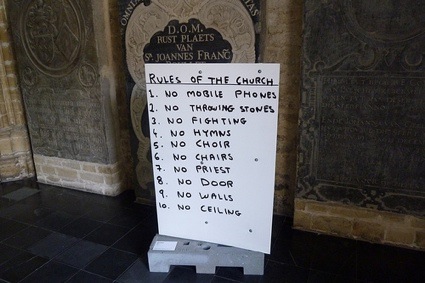 David Shrigley, Rules of the Church, 2013
David Shrigley, Rules of the Church, 2013
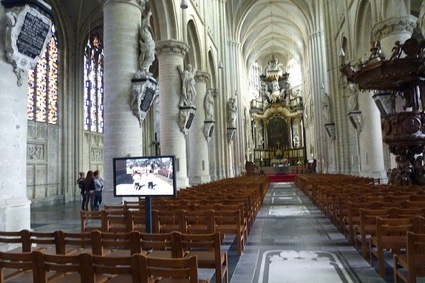
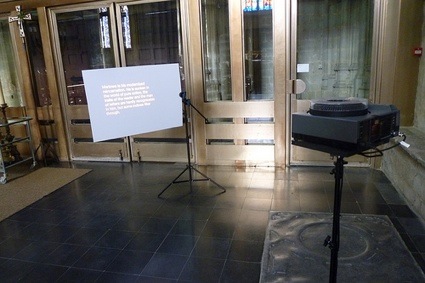
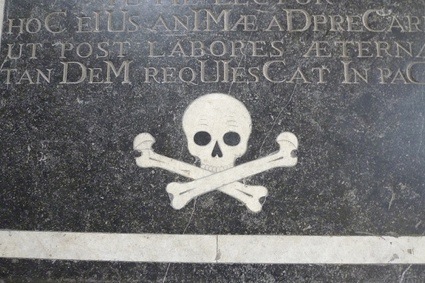
More views inside the church on Sacred Space.
You actually have to embark on a hunt around the church to see all the works. They are not aligned nicely on blank walls like in most art galleries. Which made the visit a bit challenging but in a pleasant way. At least the space is manageable. I wasn’t so lucky at the football stadium. While i was happy to be back in a stadium (the last time i was on a football field i ended up on the national news. Long story… and an embarrassing one at that), i quickly got frustrated in my attempt to locate the videos. I found the Shrigley one (hurray!) but otherwise the place was deserted and the few people i met there had no clue about the artworks shown on the premise.
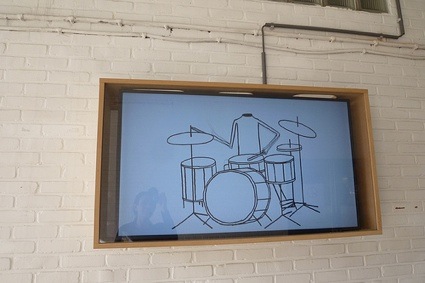
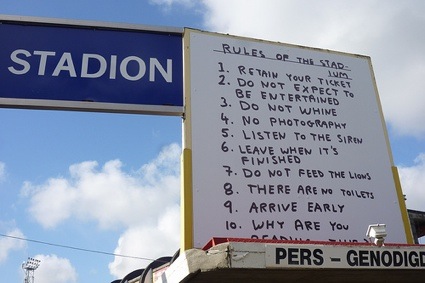 David Shrigley, Rules of the Stadium, 2013
David Shrigley, Rules of the Stadium, 2013
I was very excited by the theme of the biennial and the locations of the exhibitions but i wouldn’t say that my expectations were fully met. Many of the works were a bit too dry and abstract for me and i struggled to engage with half of what i saw. On the other hand, i took the Eurostar back home with a bag full of dark chocolate. When you’re a Belgian living in the UK, finding chocolate that lives up to what you’re used to is nothing but a depressing crusade.
More images from the biennial:
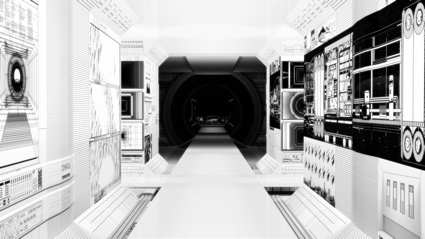 Dario Šolman, Target Orbit, 2013. Animation still. Part of the Heart of Perspective, the Making of the Film project
Dario Šolman, Target Orbit, 2013. Animation still. Part of the Heart of Perspective, the Making of the Film project
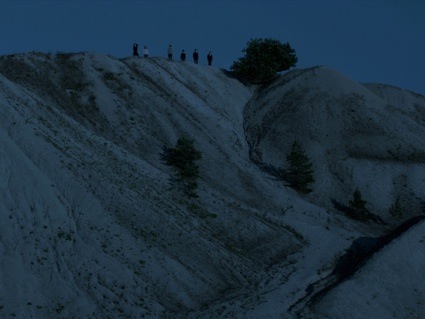 Agnieszka Polska, Future Days, 2013. Video still
Agnieszka Polska, Future Days, 2013. Video still
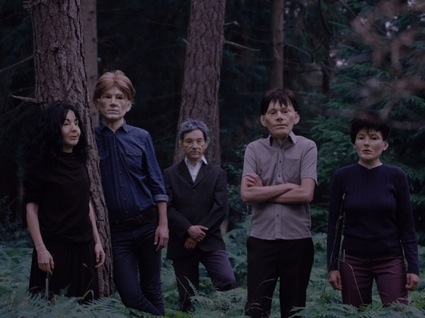 Agnieszka Polska, Future Days, 2013. Video still
Agnieszka Polska, Future Days, 2013. Video still
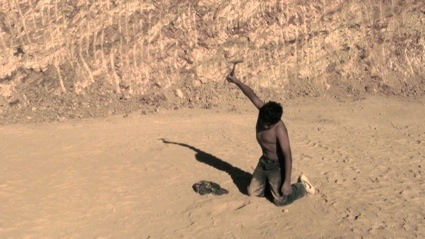 Edgardo Aragón Díaz, Family Effects, 2007-2009. Video still
Edgardo Aragón Díaz, Family Effects, 2007-2009. Video still
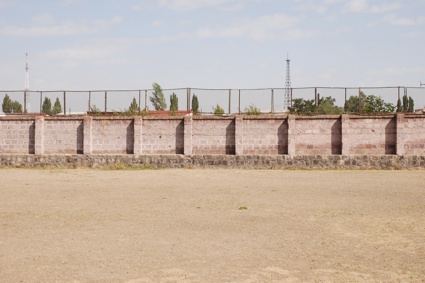 Josef Dabernig, Sports Ground Panorama 5 in Gyumri – Levon Ishtoyan Football School, 2008-2013. Detail
Josef Dabernig, Sports Ground Panorama 5 in Gyumri – Levon Ishtoyan Football School, 2008-2013. Detail
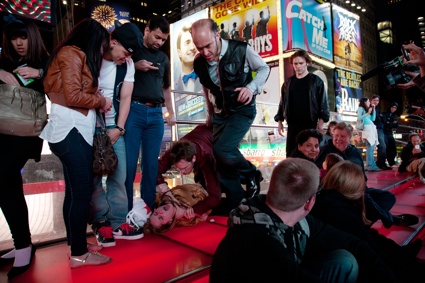 Liz Magic Laser, Flight, 2011. Performance and video
Liz Magic Laser, Flight, 2011. Performance and video
Contour 2013, the 6th Biennial of Moving Image closes this Sunday 3 November so hurry up!
